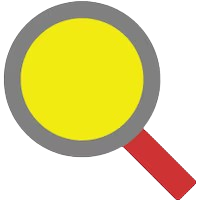Technology has been revolutionizing the music world for decades, but in recent years, smart instruments have taken that innovation to a whole new level. Imagine a guitar that gives you feedback in real-time, a keyboard that teaches you music theory as you play, or even an app-connected drum kit that adapts to your learning style. Sounds futuristic? It’s already happening—and the impact on musicianship is game-changing.
But here’s the million-dollar question: Can smart instruments actually make you a better musician? The short answer is yes, but let’s dig into the how and why. And don’t worry if you’re just getting started; you can even experiment with a free AI music generator in no time to get a feel for how far tech has come in supporting creative growth.
H2: What Are Smart Instruments, Anyway?
Smart instruments are traditional musical tools enhanced with digital features. Think sensors, Bluetooth connectivity, built-in processors, and integration with mobile apps or AI platforms. They don’t just play sound—they interact with you.
Some of the most popular smart instruments include:
- Smart guitars (like the Jamstik or Poputar) that display finger positions through LEDs and connect to training apps.
- Smart keyboards (like The ONE Keyboard or Lumi Keys) that use light-up keys and real-time feedback to teach piano and music theory.
- Digital drums (like Alesis or Roland kits) with app-based tutorials and performance analysis.
What makes them smart isn’t just connectivity-it’s how they respond to your input, guide your technique, and adjust to your learning curve.
H2: How Smart Instruments Improve Practice Efficiency
Let’s be honest: practicing music can be repetitive and frustrating. But smart instruments flip that experience on its head by using feedback loops and gamified learning to keep you engaged.
Here’s how they help you level up faster:
- Instant feedback: If you’re hitting the wrong notes or your rhythm is off, you’ll know immediately.
- Progress tracking: Many smart instruments connect to apps that monitor your skill development over time, helping you identify weaknesses and track wins.
- Adaptive lessons: Based on your performance, the software can modify exercises to suit your level, keeping things challenging but not overwhelming.
- Motivation through gamification: Unlock achievements, earn points, and challenge friends; learning becomes a game instead of a chore.
For example, smart pianos can guide your finger placement and detect if you’re lagging behind tempo. Over time, this tightens your timing and builds muscle memory in a more structured way than traditional practice.
H2: Learning Smarter, Not Harder
Traditional music learning often relies on long lessons, repetitive drills, and paper-based sheet music. Smart instruments combine interactive learning with neuroscience-based approaches.
Studies show that multisensory learning, seeing, hearing, and touching simultaneously, enhances retention. When you see a note light up, press the key, and hear the sound, you’re reinforcing that knowledge in three different ways. That’s why smart keyboards and guitars are particularly powerful for beginners.
Add in personalized learning (like lessons that adapt to your weak spots), and you’ve got a tool that respects your learning style. It’s not about cramming, it’s about understanding.
H2: Real-Life Examples: Musicians Getting Better With Smart Tech
Let’s look at how some musicians are using smart instruments to sharpen their skills:
- Emma, a self-taught guitarist: Using a smart guitar and app tutorials, she learned to play her first song in under a week and built up a solid foundation in just three months, without a teacher.
- Josh, an amateur pianist: He struggled with reading sheet music until a smart keyboard helped him visualize notes through LED lights and rhythm tracking. Now, he composes his own melodies.
- Leo, a 12-year-old drummer: His smart drum kit gamified lessons with real-time scoring. Within a year, he was performing live and syncing with backing tracks confidently.
These stories aren’t just hype, they’re reflections of how the accessibility and personalization of smart instruments empower users at every level.
H2: Actionable Tips to Get Started With Smart Instruments
Thinking of joining the smart revolution? Here’s how to dip your toes in:
- Choose your instrument wisely
Start with one that matches your interest and skill level. Beginners should look for intuitive interfaces and strong app support. - Set specific goals
Want to learn one song per month? Master chord progressions? Track your progress with app analytics and stay consistent. - Explore free options
You don’t need to break the bank. Several apps offer free trials or basic versions to get started. Some even include virtual instruments or integrations with that free AI music generator in no time we mentioned earlier. - Pair with learning platforms
Sites like Yousician, Simply Piano, or Fender Play integrate with smart instruments and offer step-by-step guidance. - Stick to a schedule
Set aside just 15 minutes daily. Smart apps often include reminders and streak counters to keep you on track.
H2: The Bigger Picture: Democratizing Music Education
Perhaps the most important impact of smart instruments is accessibility. In the past, private music lessons were expensive and time-consuming. Today, a teen with a tablet and a smart ukulele can access world-class instruction from their bedroom.
This democratization of music education could spark a new wave of musicians, diverse, self-taught, and digitally empowered. Whether you’re a hobbyist or dreaming of stardom, smart instruments are knocking down the barriers to entry.
Conclusion: So, Can Smart Instruments Make You a Better Musician?
Absolutely. They:
- Streamline the learning curve,
- Offer real-time feedback,
- Personalize practice routines,
- And keep you motivated through gamification and progress tracking.
While nothing replaces passion, smart instruments provide the tools and environment to let that passion thrive. Whether you’re jamming in your bedroom or gigging on stage, they’re like a coach, a cheerleader, and a tutor rolled into one.
